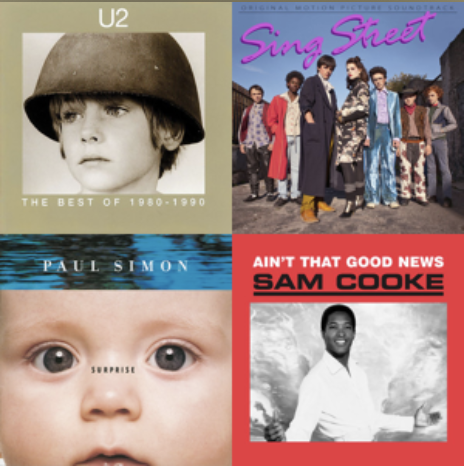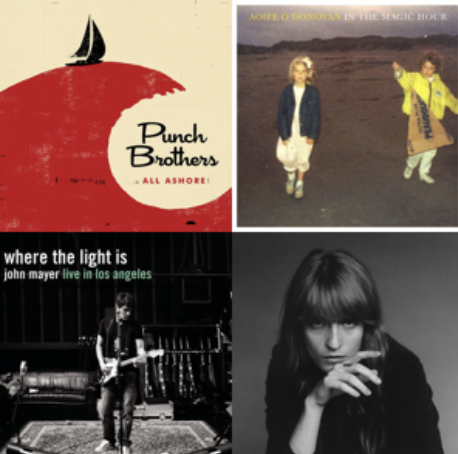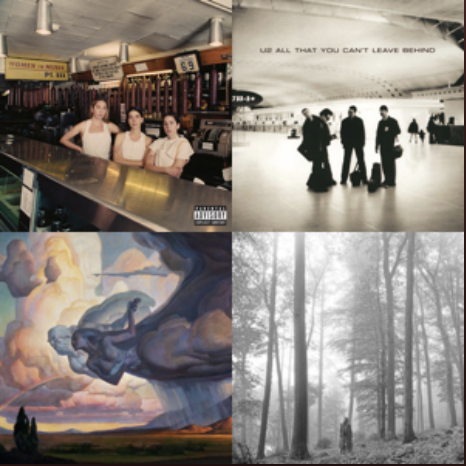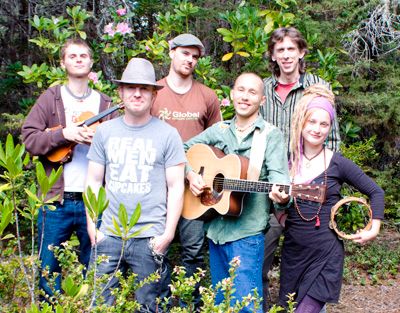
Against the backdrop of a deepening blue, the murmurs of an eclectic crowd rise up and fizzle into the open space above East 7th Street. The sun hasn’t quite set as The Human Revolution takes the stage – a cozy corner atop a generous East Village roof – but an early start means anything except an early finish at this makeshift venue. “We’ll go all night if we feel like it,” says the band’s frontman, the charismatic man in the well-worn hat known simply as Human. “Nobody else parties the way New York parties.”
And Human has some authority to speak on the subject. In the month of May alone, The Human Revolution tackled fifteen venues in ten US cities from Portland, Oregon to New York City, promoting their new album, Love Revolution, and perhaps more importantly, a much-needed message of peace, love, and unity.
Like their New York set, the new record kicks off with the classic rock ballad, “To The People,” the opening lines grabbing the listener’s attention with immediate references to September 11 and the war that followed. Melodic pedal steel layered with a gentle electric lead and a soothing violin sets a somber mood, but is in no way indicative of the musical experience to come. Quite the contrary, the album pace picks up considerably with bluegrassy banjos on “Chuck The Raven” and the distantly ska-rock anthem, “Public Servant,” but the reason for choosing this tune as an opener is clear: Human has a message to deliver, and before we get too hasty with our dancing shoes, what’s more important is that we keep our ears open to listen.
With the call to attention out of the way, Love Revolution turns to what really defines the sound of The Human Revolution: a self-described “mystic country jam rock” ranging in style from Charlie Daniels’s fiddle to killer Clapton-esque licks and Willie Nelson politics. On the tracks “Consumer” and “Fear Not I,” Human successfully dabbles in solid reggae beats and island sounds, giving us the only musical taste of “mystic” on the album (the rest is left up to the lyrics). We even glimpse a brief lyrical rap on the bridge to “Soul Revival,” immersed, of course, in an ocean of harmonicas and rhythmic jams which keep the listener wondering if The Human Revolution can be classified in a sub-genre at all.
And that is, perhaps, precisely one of the things The Human Revolution seeks to, well, revolutionize: the way we look at music. Since the grunge era of the Nineties, when bands like Nirvana and The Smashing Pumpkins were lumped into an “alternative” genre of rock ‘n’ roll, sub-genres of rock music have popped up across the world, breaking sound-styles down into categories like indie (it’s a style, not a record label association), alternative, alternative rock (apparently there’s a difference), college rock, goth rock, post punk, trip-hop, electronica, and avant-garde; in short, there are enough sub-genres for all musicians to feel like they’ve done something unique and original. Yet while The Human Revolution has necessarily followed suit at least in part, their focus embodies far more than just the sound.
Take the title track, for example. Immediately following a powerful lead guitar intro, Human sings, “I’ve got two people inside myself, one who wants to fight, and one who wants to pray,” and then, “We’ve got to rise up and sing, dance around and play/The Love Revolution is right here, right now, it’s today.” Particularly during what’s been labeled “The Great Recession,” there are few people who haven’t felt sentiments at least vaguely similar to the dichotomy Human presents, but what medium besides the irresistible groove of country jam rock ‘n roll can really convince us that what we need to do is to stand up for what we believe in, dancing and singing all the while?
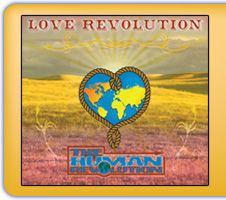
That’s where the true potency is found in Human’s songs. Though from time to time it may come across as idealism, Human employs what is actually a very pragmatic way to say the things that so many people are thinking. Speaking to me while on the road to Virginia, Human says, “I’m a very spiritual person. I believe in the power of prayer, but at the same time, I think we have to engage the world.” But “engagement” doesn’t mean hostility, no matter how angry we may feel from time to time. “You can’t fight violence with violence. The way to ‘fight’ the wrongs of the world is to be loving, to serve and help the planet.”
What sets The Human Revolution apart, however, is that their message doesn’t only appear on paper. They actually practice the lot of what they preach. Consider their current tour: The rotating-member band has traveled from Portland, Oregon to New York City on only eight gallons of petroleum-based gasoline. “We travel in a van designed to run ethanol, biodiesel, or just SVO (straight veggie oil). Sometimes refueling puts us a bit out of the way, but it’s worth it when you consider what we’re still saving both in terms of money and the earth.” Such feats as this put songs like “Conversion” in a very different light, one bright enough to call the American people out of the carbon caves we’ve been living in for most of our lives, yet not so bright as to blind us with reckless idealism and intangible hope for a cleaner future.
The pill, then, that seems like it might be hardest to swallow is the one that delivers the message of spirituality along with the organic, hug-your-neighbor, cut down on carbons and cut out the corporation vibe. In an increasingly atheistic nation, infusing feel-good beats with any idea even vaguely indicating a spiritual authority is risky business. But we’re not becoming atheists because we can’t tolerate God; we’re becoming atheists because we’ve become complacent in taking God seriously, another agenda The Human Revolution makes no bones about addressing.
Taking a lead from less-religiously-reserved reggae artists (though he does not identify as Rastafarian or Jewish), Human sends another important message to the American people in “Fear Not I”: “For as long as I walk upon this land, I know that Jah will protect me…Money it will come and go, I will have no fear of poverty/I will spread the abundance when Jah give it to I, for money will not make I free…” The exact opposite of hard to swallow, the medicine The Human Revolution offers tastes sweet, soothing as it goes down, and if we take it in the proper doses with some regularity, we’ll find that the spirituality they promote does, in fact, have the power to heal during these confusing and broken times.
Far from idealism, The Human Revolution offers a positive and powerful message of reform desperately needed by the American people perhaps now more than ever. While newspapers fill their pages with stories of suicides, crimes, illnesses, and hopelessness related to economic downturn and increased cultural strife, Human has done just the opposite. He and his band have reminded the world that there is always hope, there is always goodness to be had and life to be enjoyed, and none of it has to rely on money or any of the myriad popular vices we’ve come to accept as a way of life.
A human revolution? Maybe. Or maybe it’s really just a human reminder calling us back to the way we once were, and the way we were supposed to be in the first place.
The rest of The Human Revolution’s tour dates are available on their website, as are their albums (also available on iTunes) and booking information. Because the musician lineup rotates, there’s no guarantee that every show will have a full set-up, but you can be sure that whatever you get, it will be full of hope, love, and a danceable groove.

